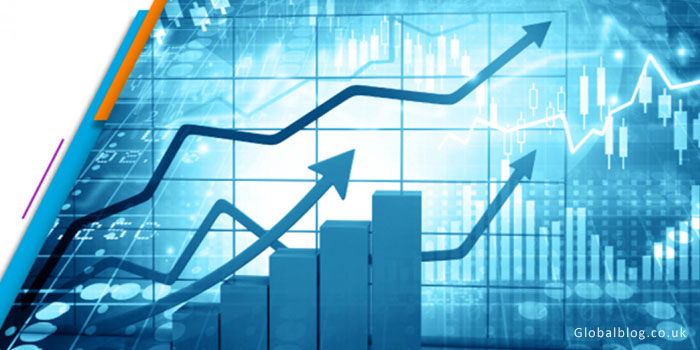Introduction to Global Economic Prospects
Welcome to a world of boundless opportunities and ever-evolving landscapes in the realm of global economic prospects. As we navigate through the aftermath of one of the most unprecedented events in recent history, the COVID-19 pandemic, it’s crucial to explore the shifts, challenges, and emerging trends shaping our interconnected economies. Join us on this insightful journey as we delve into the profound impact of current events and uncover pathways toward a brighter future filled with potential for growth and innovation. Let’s unlock the doors to a world brimming with possibilities in the global economic arena!
The Impact of Covid-19 on the Global Economy
The emergence of the Covid-19 pandemic brought unprecedented challenges to the global economy. Lockdowns, travel restrictions, and supply chain disruptions caused a significant downturn in economic activities worldwide. Businesses faced closures, millions lost their jobs, and financial markets experienced volatility like never before.
Governments implemented massive stimulus packages to support struggling industries and stabilize economies. The shift towards remote work highlighted the importance of digital technology, accelerating trends like e-commerce and telecommuting. However, sectors such as tourism, hospitality, and aviation suffered severe setbacks due to reduced demand and safety concerns.
As countries continue to navigate through the uncertainties posed by the pandemic, fiscal policies are crucial for economic recovery. Collaboration on a global scale is essential to address ongoing health crises while rebuilding economies sustainably for a post-pandemic world.
Key Factors Affecting Global Economic Growth
Global economic growth is influenced by a myriad of factors that shape the trajectory of countries and industries worldwide. One key factor affecting this growth is technological advancements, driving innovation and efficiency across various sectors. Additionally, political stability plays a crucial role in creating an environment conducive to investment and business development.
Market demand and consumer behavior also significantly impact global economic growth as they drive production, trade, and overall economic activity. Moreover, natural resource availability and sustainability practices are essential considerations for long-term growth strategies.
Trade agreements between nations can either boost or hinder economic growth depending on their terms and implications for businesses. Workforce skills and education levels contribute to enhancing productivity and competitiveness in the global market landscape.
By understanding these key factors influencing global economic growth, policymakers, businesses, and investors can make informed decisions to navigate the ever-evolving international economy effectively.
Emerging Markets and Their Potential for Growth
Emerging markets represent a dynamic landscape of opportunity for investors seeking growth beyond traditional boundaries. These regions, characterized by rapid industrialization and increasing consumer demand, hold the potential to drive global economic expansion.
Countries like India, China, Brazil, and Indonesia are prime examples of emerging markets that have shown resilience and adaptability in the face of challenges. With young populations eager to embrace innovation and technology, these economies are positioned to lead the way in shaping the future of global trade.
Investors looking to diversify their portfolios can explore sectors such as renewable energy, e-commerce, and fintech within emerging markets. By tapping into these high-growth areas, they can capitalize on the transformative power of innovation while contributing to sustainable development goals.
As these economies continue to evolve and mature, strategic partnerships between local businesses and international corporations will play a crucial role in unlocking their full potential. By fostering collaboration and knowledge exchange, emerging markets can harness their strengths to propel global economic growth forward.

Opportunities for Investors in a Recovering Economy
As the global economy begins to recover from the impacts of the pandemic, there are ample opportunities for investors to capitalize on emerging trends and sectors. One key area of focus is technology, as digital transformation accelerates across industries. Investing in companies that offer innovative solutions and services can lead to significant returns.
Another promising avenue for investors is sustainable investing. With an increasing emphasis on environmental, social, and governance (ESG) factors, businesses prioritizing sustainability are likely to outperform their peers in the long run. By aligning investments with ESG principles, investors can contribute to positive change while generating profits.
Furthermore, emerging markets present attractive opportunities for growth due to their expanding consumer base and untapped potential. Investing in these markets can provide diversification benefits and higher returns compared to developed economies. Investors need to conduct thorough research and seek guidance from financial advisors when exploring these investment prospects.
In this dynamic economic landscape post-pandemic, staying informed about market trends and being adaptable is crucial for seizing investment opportunities that arise during times of recovery. By keeping a keen eye on evolving sectors and embracing a diversified investment strategy, investors can position themselves well for success in a recovering economy.
Sustainable Development and Its Role in Global Economic Prospects
As we navigate the complexities of global economic prospects, sustainable development emerges as a critical player in shaping a resilient and prosperous future. The integration of sustainable practices not only fosters environmental protection but also drives innovation and efficiency across industries. Companies embracing sustainability are better positioned to mitigate risks, attract conscientious consumers, and enhance long-term profitability.
In the realm of global economic growth, sustainable development catalyzes inclusive prosperity by promoting social equity and ethical business practices. By prioritizing environmental stewardship and social responsibility, businesses can contribute positively to communities while safeguarding resources for generations to come.
When considering investments in the post-pandemic world, incorporating ESG (Environmental, Social, Governance) factors into decision-making becomes paramount. Sustainable investing not only aligns with ethical values but also presents opportunities for financial returns while supporting initiatives that benefit society at large.
Moving forward, sustainable development will continue to play an integral role in shaping the trajectory of global economic prospects towards a more equitable and environmentally conscious landscape.
Conclusion
In conclusion: let us embrace the challenges and opportunities that lie ahead as we navigate through this evolving landscape of global economic prospects. By staying informed, adaptable, and innovative, we can unlock the full potential of a thriving post-pandemic economy.
